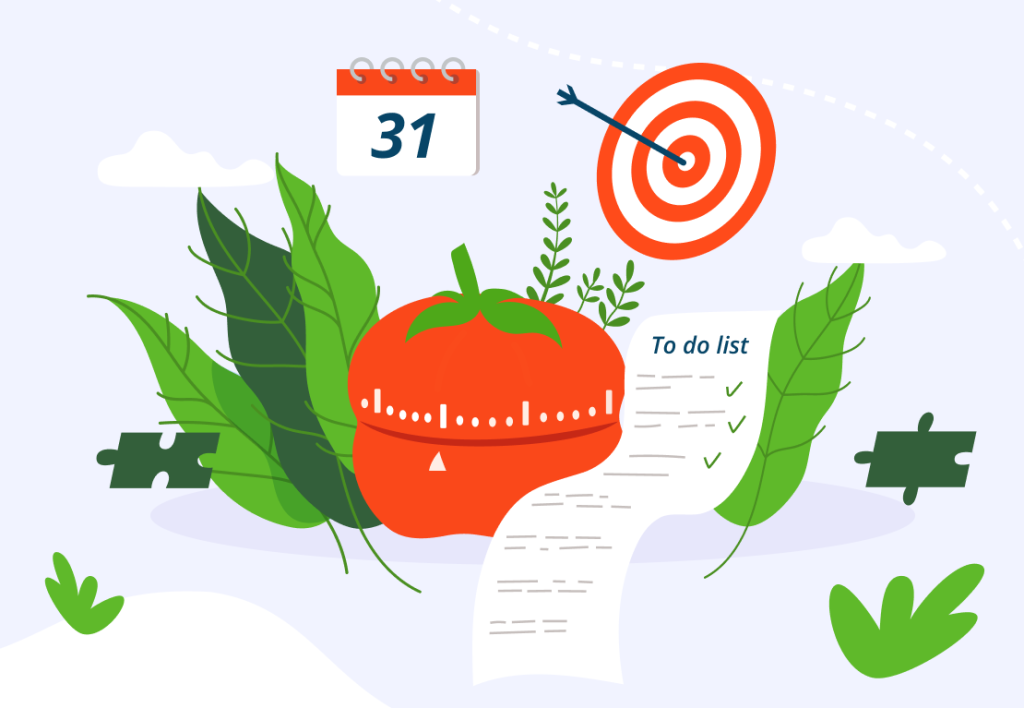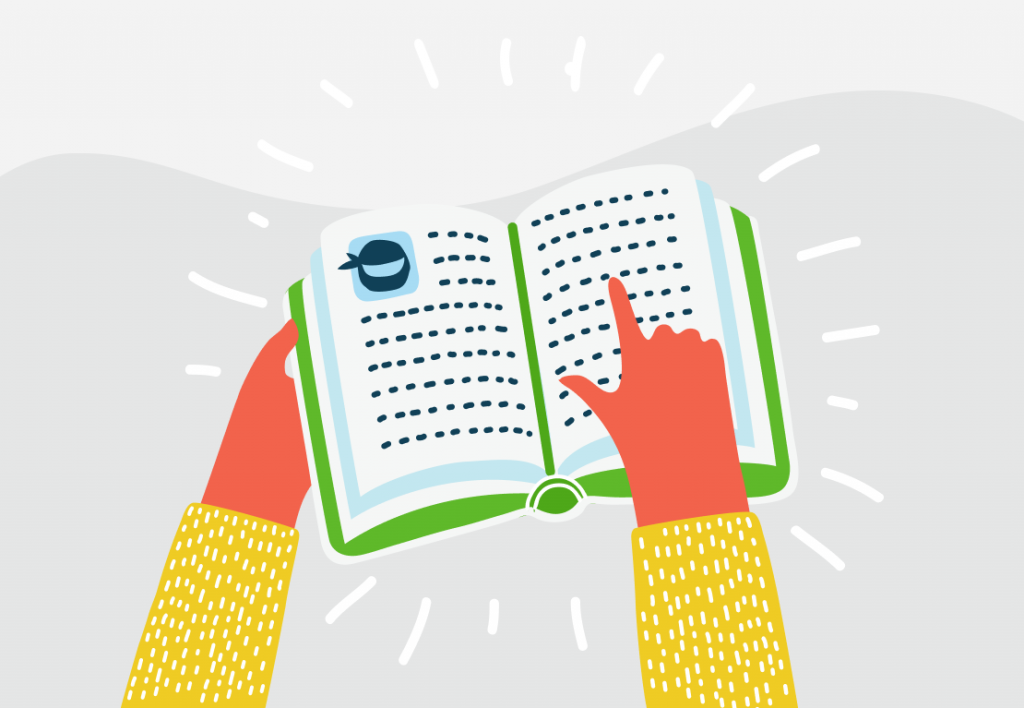Small productivity habits with a big impact

Same as the power lies in the details, our efficiency is found in productivity habits we adopt. It’s of course never easy to change one’s lifestyle and fill it with healthy and productivity-boosting practices. But it’s also not impossible – there are small productivity habits that are a lot more impactful than we may assume while not being that hard to adopt.
If you’re curious about what are the small practices productive people follow, we have dug out a collection for you. Keep reading to discover productivity habits you may want to integrate into your routine.
You can also take a shortcut:
- Identify MITs on your priority list
- Add regular breaks to your best productive daily routine
- Develop a productivity habit of reading books
- Prepare a distraction list to remain attentive
- A habit to be more productive – split your tasks into smaller chunks
- Include deep work among your most productive habits
- Ditch the daily decision-making process a bit
- Give minimum importance to time-wasting habits
Want to get the most out of your time?
Try DeskTime for free!
Try free for 14 days · No credit card required.
By signing up, you agree to our terms and privacy policy.

Identify MITs on your priority list
While making to-do lists is one of the good habits for productivity, long lists of tasks do nothing but intimidate us. Plus, focusing on all types of tasks together can leave you perplexed and draw your attention away from the critical things on your to-do list.
On the contrary, selecting a limited number of (~1-3) MITs – most important tasks – that need to be done by the end of the day will keep you determined and focused. Plus, the relieving sight of a brief to-do list will boost your efficiency and productivity.
Here are some ways for you to cut down your to-do list:
Add the 80/20 rule to your daily productive habits
80/20 rule, also known as the Pareto Principle, is a suitable option to cut down your priority list. According to it, 80% of the outcomes are achievable if you efficiently perform only 20% of the vital tasks. Since the remaining 80% are insignificant, they can be eliminated or designated. Hence, leaving more time for you to invest in important tasks.
Give the Eisenhower Matrix a Shot
Assigning every daily task an equal priority is nothing but a time-draining drill. Realizing this, Dwight Eisenhower discovered the Eisenhower Matrix. Here’s how you can use it to start setting priorities like a pro:
- Prepare a 2×2 square
- Make “important” and “not important” rows on the vertical axis.
- On the horizontal axis, make “urgent” and “not urgent” columns
- Fill the matrix based on every task’s importance and urgency.
Do the tasks instantly that lies in the important and urgent zone. Execute a plan for doing important but non-urgent tasks. Delegate or automate the tasks that are urgent but insignificant. Eliminate unimportant and non-urgent tasks.
Add regular breaks to your best productive daily routine
Not even the most energetic people can remain 100% productive for straight 8 hours. Instead, taking breaks between work has proven to be one of the best productivity habits.
A productivity habit of taking breaks is a great way to recharge your body. Take the most out of these minutes by doing stretching exercises, meditating, or simply grabbing lunch. But make sure the breaks are scheduled and deliberate. Those distractions justified as “taking a break” are not the refreshing breaks you require.
Note: You can try out the 52-17 rule – a 52-minute focus followed by a 17 minute-long break. It works for many!
Develop a productivity habit of reading books
Reading may be one of the most delightful productivity habits out there. And I’m not talking about self-improvement literature only. Though fiction books provide an avenue of escapism, they also teach you creativity, intelligence, and emotional stability.
Those reading books before bed enjoy deep sleep, which improves mental performance. On the other hand, reading non-fiction ensures a better understanding of complex topics, improves cognitive skills, and stimulates your brain to function effectively.
So to land in a win-win situation, allow some time to benefit yourself from reading books every day.
Prepare a distraction list to remain attentive
It’s the 21st century, and distractions are surrounding us from everywhere. A sudden notification from Facebook, a message from your friend on Instagram, or an unpaid bill, all it takes is an instance to lose focus. To address this issue, people resort to a productivity habit called distraction lists.
Whenever a distraction pops in your head and the fear of forgetting forces you to pay attention, you write it on the distraction list. This way, your concentration remains directed toward the work. At the same time, you can tackle the distractions during your break time.
A habit to be more productive – split your tasks into smaller chunks
Climbing a wall becomes simpler with a ladder. Likewise, completing a challenging task requires defined steps.
Challenging tasks also encourage procrastination. Since they seem too daunting, you resort to delaying them until the deadline arrives. Instead, breaking a large project into smaller chunks will make it manageable.
For instance, the task of “writing a blog post on topic XYZ” can be split into the following six steps:
- Search for keywords related to the topic.
- Start thorough reading of top 5-10 search results on the topic.
- Brainstorm for unique ideas.
- Prepare an outline based on your analysis.
- Write key points in bullets under each heading.
- Start expanding points into proper sentences and paragraphs.
Designing a blog post or doing any seemingly impossible task with proper direction and specification can become easily achievable. Thus, splitting a challenge into smaller chunks is a great productivity habit to adopt.
Include deep work among your most productive habits
While splitting strenuous tasks is a sound strategy, it does not work every time. Some tasks are complicated by nature. Investing full attention and mental capabilities is the call in such cases. Programming, research-intensive, data analysis, and other tasks require deep work – another productivity habit worth implementing into your daily routine.
Here’s how to do it:
- Fix a daily routine
Doing challenging tasks at a similar time every day makes your mind adaptive to such a working routine. You can choose to be an early bird or a night owl; what’s important is to try sticking to a fixed routine.
- Learn about your work habits
Determine your work habits and set the deep work schedule accordingly. Do you prefer working alone? Does your brain function best in the morning? Are short breaks refreshing for you?
- Staying out-of-reach is better sometimes
Avoid all possible means of distraction while performing deep work. Stay unconnected and spend less time on communications to get efficient results.
- Accept living a few boring hours daily
The task is draining, and you will get bored. But, escaping boredom is not the key here. It would help if you learned to be comfortable in living those frustrating, deep work hours. Otherwise, you will end up wasting quality time on distractions like social media.

Invite structure in your workday!
Our all-in-one time management solution works wonders
Ditch the daily decision-making process a bit
Wasting your time and effort on simple decisions like “which dress should I wear today?” or “what should I eat for lunch?” is counterproductive.
Similarly, some tasks are pretty simple to waste your time on. Outsourcing them and focusing on more critical projects is a worthwhile productivity habit to adopt.
Here’s an example – most of the productive people, including Obama, follow the same suit. He says:
You’ll see I wear only gray or blue suits. I’m trying to pare down decisions. I don’t want to make decisions about what I’m eating or wearing. Because I have too many other decisions to make.
Give minimum importance to time-wasting habits
A bane to productivity is spending time on useless activities. If you keep your email inbox open throughout the day and reply to every mail instantly, you are draining too much time for being responsive.
Alternatively, you can check emails during break times. Other than that, social media is a severe time-sink. Though we don’t suggest eliminating it, restricting its usage is a useful productivity habit to have.
- Discover shortcuts to automate daily tasks
Try finding quicker ways to complete tasks that you regularly work on. For instance, increasing typing speed and learning some keyboard shortcuts can significantly help you with the work that you do on your computer.
You can also delegate or outsource the tasks to others, but make sure to keep a check. Similarly, the same tasks can be executed with identical planning. Save your planning time, set up a standard procedure, and follow it every day.
- You are not meant to do everything – avoid multitasking
Although multitasking is hailed as a great attribute, it is not always beneficial. When you are doing two equally draining tasks at a time, your mind has to switch between them. This rapid switching leads to focus loss, and productivity is affected.
So, instead of biting more than you can chew, try doing one thing at a time. You can also share your workload with others by outsourcing.
- Find the hidden lessons in your success and failures
Learning from failures is a great productivity habit, which saves you from repeating the same mistakes and slowing down your working speed. However, there are some great lessons taught by your success as well. Once you are done celebrating the achievement, identify the reasons for your success.
Ask questions like what was the best thing about your project? Is there any area for improvement? The self-analysis locks repetitive successes for you in the future.
Takeaway on productivity habits
Regardless of what it may look like, productive people are not magicians, but they have discovered intelligent ways to overcome procrastination and other hurdles – productivity habits. All in all, you too can achieve the same productivity by learning to manage time, identifying MITs, and allocating work to others when required. Be wise with your resources and time and let those little productivity habits help you become your best self!
This is a guest post by Erika Rykun, Content Manager at WikiJob.co.uk. Erika is a career and productivity copywriter who believes in the power of networking. In her free time, she enjoys reading books and playing with her cat Cola.
Did you find this article useful? Give it a clap!
Psst! You can clap more than once if you really loved it 🙂



